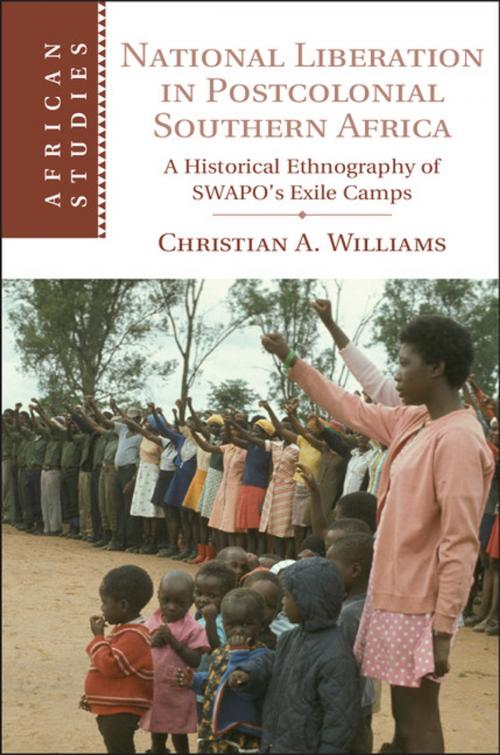National Liberation in Postcolonial Southern Africa
A Historical Ethnography of SWAPO's Exile Camps
Nonfiction, History, Africa, Social & Cultural Studies, Social Science| Author: | Christian A. Williams | ISBN: | 9781316393871 |
| Publisher: | Cambridge University Press | Publication: | October 8, 2015 |
| Imprint: | Cambridge University Press | Language: | English |
| Author: | Christian A. Williams |
| ISBN: | 9781316393871 |
| Publisher: | Cambridge University Press |
| Publication: | October 8, 2015 |
| Imprint: | Cambridge University Press |
| Language: | English |
This book traces the South West Africa People's Organization (SWAPO) across its three decades in exile through rich, local histories of the camps where Namibian exiles lived in Tanzania, Zambia, and Angola. Christian A. Williams highlights how different Namibians experienced these sites, as well as the tensions that developed within SWAPO as Namibians encountered one another and as officials asserted their power and protected their interests within a national community. The book then follows Namibians who lived in exile into post-colonial Namibia, examining the extent to which divisions and hierarchies that emerged in the camps continue to shape how Namibians relate to one another today, undermining the more just and humane society that many had imagined. In developing these points about SWAPO, the book draws attention to Southern African literature more widely, suggesting parallels across the region and defining a field of study that examines post-colonial Africa through 'the camp'.
This book traces the South West Africa People's Organization (SWAPO) across its three decades in exile through rich, local histories of the camps where Namibian exiles lived in Tanzania, Zambia, and Angola. Christian A. Williams highlights how different Namibians experienced these sites, as well as the tensions that developed within SWAPO as Namibians encountered one another and as officials asserted their power and protected their interests within a national community. The book then follows Namibians who lived in exile into post-colonial Namibia, examining the extent to which divisions and hierarchies that emerged in the camps continue to shape how Namibians relate to one another today, undermining the more just and humane society that many had imagined. In developing these points about SWAPO, the book draws attention to Southern African literature more widely, suggesting parallels across the region and defining a field of study that examines post-colonial Africa through 'the camp'.















